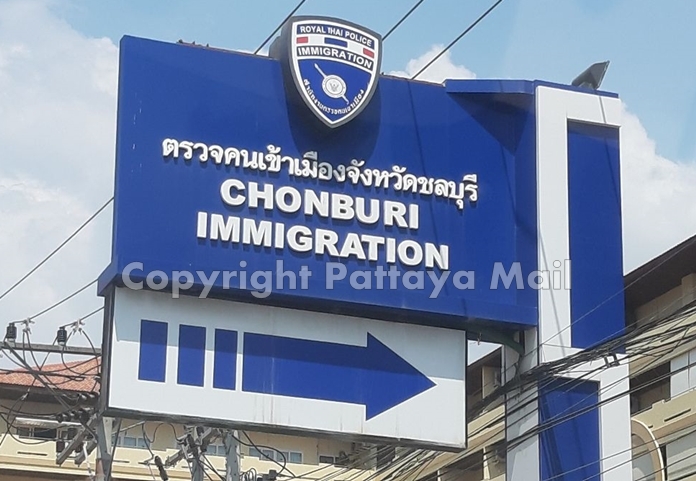
Thai immigration authorities are still going head-to-head with other government agencies about the best way forward to deal with the tens of thousands of foreigners who took advantage of the decision last April to allow all short-term visa and extension holders to remain in the country until the end of July. They did not need to pay any fee, fill in any forms nor attend an immigration police office.
It was hoped last spring that the international travel situation would have eased by now, but that’s only true marginally. Many countries are still banning all or most foreign nationals from entering by air, land or sea. Flights are taking off daily from Bangkok airports to foreign destinations but it’s a far cry from back to normal. Meanwhile, Thai borders with Myanmar, Cambodia, Laos and Malaysia remain closed to all aliens unless they are permanent residents or receive special permission from the respective government.
This situation is unlikely to change dramatically before July 31. There has been some talk of travel bubbles, a vague phrase which suggests special exemption for specified groups of individuals. But as recently as July 8, the Thai civil aviation authority’s director-general, Chula Sukmanop, poured cold water on the idea for now as there has been a spike in coronavirus infections in some Asian countries. Foreigners, stranded in Thailand, are unlikely to be allowed to cross to neighboring countries on a border run (hop over the border and back the same day) or a visa run (to obtain a new permission from a Thai embassy typically based in the capital city) any time soon.
The problems for the Thai authorities in deciding what to mandate after July 31 are as complex as the many headed Hydra of Greek mythology which grew a new bonce if one was cut off. But they are essentially concerned with how to avoid chaos at Thai immigration offices on Monday August 2 and thereafter, and to acknowledge that security concerns require some kind of formal monitoring. For many years, Thai immigration procedures have been preoccupied with the need for visitors and expats to “do” something every 90 days, for example report address, obtain an extension, leave the country.
For these reasons it’s unlikely that the amnesty would automatically shut down on July 31. Chaos would be guaranteed. Another unlikely candidate is that the entire amnesty will be extended another three months. But the Thai security agencies would surely never agree to a total of six months plus in which foreigners have been untrackable by all the traditional devices in place for decades. History always has a strong grip on bureaucracies.
A compromise could be a further extension of the blanket amnesty for all until August 31 on the premise that the international travel situation might be clearer by then. Everyone would immediately start speculating whether another might be given for September. The August amnesty could in theory be accompanied by a demand to pay 1,900 baht online, although the recent history of computerized bureaucracy in immigration-related matters is not encouraging and crashed sites could well be a major problem.
Another candidate for adoption could be a free 30 days amnesty extension to August 31 with a binding, bleak statement that there won’t be another. In other words, visitors exiting by air must leave before that final cut-off whether to their home country or anywhere else that would accept them. There may be fewer of these remainers than commonly supposed as many have already left Thailand on available flights. More would do so quickly if they knew the amnesty was indeed time-limited.
As regards land crossings, there would be time before the end of August for Thai authorities to establish temporary visa-issuing consular offices actually at the border post adjacent to a neighboring country, but still on Thai territory. This would avoid seeking the permission of those countries to admit foreign nationals, or risking their wrath if an individual was refused a visa and forced to remain on the wrong side of the fence.
Whatever solution is finally introduced, it is becoming increasingly clear that Thai immigration policy in the future will need to shift gear to a more hi-tech orientation with less dependence on showing up in person, especially for mundane matters, and more use of the latest computerized technology by visa-issuing embassies abroad. Covid-19 is the first pandemic to create chaos in the world’s travel industry. It might not be the last.
 |
 |
 |





